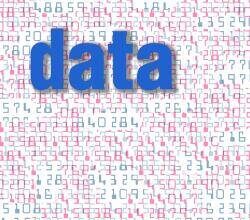We live in the times when big data is used to by nearly every service provider to identify its customer segment, profile the right customers, sell and upsell to them. Hence, I can actually say that the importance of data is just enormous, especially when it comes to making important decisions on the fly.
We live in the times when big data is used to by nearly every service provider to identify its customer segment, profile the right customers, sell and upsell to them. Hence, I can actually say that the importance of data is just enormous, especially when it comes to making important decisions on the fly.
As a rule, different data has different value for different organisations. Some online advertisers would be quite happy with just knowing my language preferences and location, while others would want to know how the meal I had yesterday looked like. Well, jokes aside, it is clear that the data one needs to sell a pizza should be much cheaper than the information required for the such a product as a car insurance. In simple words, the more profitable the industry is, the riskier it gets and the higher quality of the data you need to sell your products successfully.
If only banks knew what they know
Even though many people would certainly agree that data is new oil, there are actually organisations that are just sitting on a gold mine. Yes, I am talking about banks. Upon opening a bank account, a person is disclosing his names, date of birth, address, identification documents, contact details and more. This amount of data would already be quite wanted by most of the organisations, yet that’s just a tip of an iceberg.
Once you actually start using your bank account, you will also start supplying the bank with the best intelligence ever. If you are a frequent credit / debit card user, a bank would find out where you eat, how much money you spend on clothes, how often you use uber…the information flow is just limitless.
What if you could access banking data
Imagine you are given just a fractional piece of this data, I bet the ideas for some cool apps and services are already flooding your head, aren’t they? It is a pity that most of the bankers think otherwise and a huge amount of the financial data is wasted. Even if a certain bank just doesn’t want to use this data, it could open up an API and let a bit more open minded organisations use it.
The benefits of having access to the financial data are just enormous. This could allow institutions that give mortgage (which are not always the banks where you have most of your transactions) to assess your creditworthiness better and, in return, supply you with a better borrowing rate. Considering the prices for the real estate in the developing countries, it would easily provide consumers with $10,000+ in benefits.
Alternatively, if we just forget about the transactional data for a second and look into the data you are supplying when just opening an account, it becomes clear that supplying the same data second time is actually redundant. For most of the “modern” services that we currently use, we hardly have to supply credentials every time we want to register. It became a habit to login with G+, Facebook or any other account you might already have. Why should it be any different when it comes to opening “offline” accounts?
So what can be done to facilitate the development?
Luckily, such an industry as fintech was born and it gave birth not only to great online projects in the field of finance, but it has also created both the demand and the supply of the software that can bootstrap the development of consumer finance.
While there banks that resist opening up their data to the world of developers, there are a few vendors of the banking API, a technology that can allow a fintech startup, an online lender, a personal finance management tool or even a competitive banks to let their users allow accessing their banking data through their consent. One of such vendors is Kontomatik, an aggregator of the financial data that can help brave banks and fintech companies already in Poland, Spain, Czech Republic, Slovakia, Mexico, Brazil and Russia. The US market is a bit more developed, as it has quite a few providers.
With the help of such modern technologies we will certainly be able to see a great digitalisation and the transformation of the whole financial services industry as we know it. If the banks are not brave or smart enough to use the data they keep, eventually this data will be used by someone else to design better and more competitive products.









